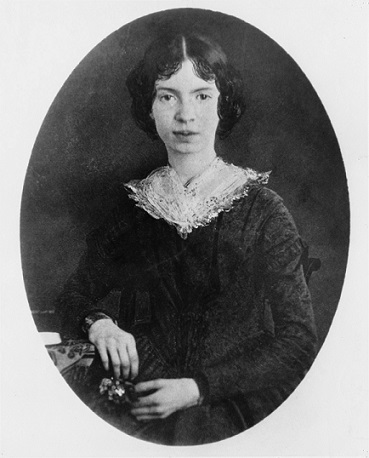|
home | what's new | other sites | contact | about |
||
|
Word Gems exploring self-realization, sacred personhood, and full humanity
Emily Dickinson When roses cease to bloom, dear
Emily Dickinson (1830-1886)
When roses cease to bloom, dear,
Emily Dickinson’s "When Roses cease to bloom, Sir" demonstrates the poet’s depth of knowledge of the science of the evolutionary progress, as well as her insight into the spiritual significance that such knowledge suggests for the human mind and heart on its path through evolutionary advancement. First Movement: Emphasis on Beauty When Roses cease to bloom, Sir, The speaker begins the "when" function by addressing the Divine Ineffable Reality. She suggests that she will be asking for some favor after flowers have come and gone. She allows "Roses" and "Violets" to represent all natural vegetation, which would include all plants growing in the fields, along the streets, and in her own vegetable garden. By allowing only two lovely flowers to represent all of the plant kingdom, the speaker is demonstrating her emphasis on her love of beauty. The speaker then demonstrates that she is including both domesticated plants—roses, and those that continue to grow wild—violets. The Blessèd Author of creation as well as the speaker’s listeners/readers are invited to observe that the speaker keeps her mind firmly on her goal, her own creation of beauty and engagement in health and wholesomeness. Second Movement: Evolution from Plant to Animal When Bumblebees in solemn flight The speaker then turns to the animal kingdom, allowing the simple bumblebee to represent that kingdom. The "Bumblebees" have engaged in "solemn flight" and like the roses and violets are now passing out of existence. Unlike the rose that "cease[s] to bloom" and the violet whose passing out of existence is qualified as merely "done," the bee, an evolutionarily higher-stationed member of the animal kingdom, "pass[es] beyond the Sun." The speaker makes the distinction between the two kingdoms in this marvelously ingenious way–how they cease their summer sojourn. As flowers simply pass away by simple cessation, the bees have engaged in the physical act of moving, which is denied plants rooted to the earth; thus, the speaker creates the bees’ metaphorical passing beyond light. Even though the souls of all those creatures remain distinct entities in the mind of their Creator, they express in very different ways according to their current incarnation on earth, representative of their individual and collective karma. It is only natural that the higher evolved bee would demonstrate an ability beyond that of the lower plant world. And the speaker’s ability to place this distinction in such a minimalist setting demonstrates this speaker’s understanding regarding the existence of the hierarchy to which earthly creatures remain attached until their final liberation. All created beings must pass through this hierarchical system on their way from lowest to highest form on the evolutionary scale. Third Movement: The Human in Creation The hand that paused to gather The speaker has now quit her focus on the plant and animal kingdoms and is focusing on the simple human feature of a "hand," a synecdochic representative of the human physical encasement. That hand pauses. Instead of moving to pluck and collect those flowers before they are gone, this hand leaves them in place. Instead of shooing away the bees, the speaker simply takes the measure of their movement, while fashioning the observation that distinguishes the flowers from the bees. All summer long, the speaker has observed the bees extracting nectar from the flowers. The relationship between the flowers and the nectar-gathering bees has impressed upon the mind of the speaker the symbiotic relationship that exists in nature and that extends to the human being as an integral part of that natural scenario. But the speaker now holds her request of the Divine Creator until she has described her own situation, her own participation in the drama that she has created in the garden of her mind, heart, and soul. Her poetic garden contains multitudes, and the ability to grow metaphorical, metaphysical flowers, bees, human hands remains her greatest challenge and strongest ability. Fourth Movement: The Metaphysical Garden of Verse Will idle lie – in Auburn – That human hand that pauses does so to continue its construction of her own metaphysical, poetic creation—that original garden into which she had early on invited her brother to visit. After that hand becomes "idle," it will cease creating those metaphysical flowers and those metaphysical bees. Therefore, the speaker then demands of the Beloved "Sir" that He "take [her] flowers"—adding for emphasis, "pray!" After the speaker herself has ceased blooming and flying beyond the sun and pausing from the labor of metaphorical, metaphysical garden creation, her physical form will exist like a bug in amber and become unresponsive and "lie – in Auburn." Thus, the clever speaker is requesting through a strong demand that the Divine Gardener accept her metaphysical flowers. Such a demand may seem infinitely cheeky of a mere created child of the Master Creator of the Cosmos, but the speaker has demonstrated repeatedly that she remains steadfast in her devotion and confident in her ability to create flowers—offerings—that are acceptable to a most discriminating Divine Creator.
|
||
|
|
